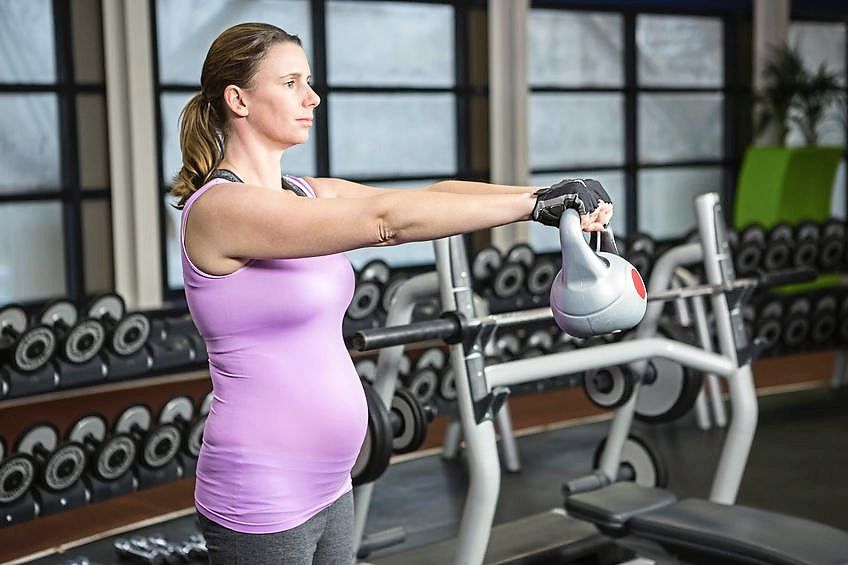Pregnancy is a beautiful journey, filled with excitement and anticipation. However, it also comes with its own set of challenges, particularly when it comes to maintaining fitness and wellness. This is where prenatal personal trainers step in, offering tailored support to expectant mothers throughout their pregnancy journey.
Benefits of Prenatal Personal Training
Physical Benefits
Prenatal personal training focuses on exercises specifically designed to support the changing needs of a pregnant body. From improving posture to strengthening pelvic floor muscles, these workouts can help alleviate common pregnancy discomforts and prepare the body for childbirth.
Emotional Benefits
Exercise releases endorphins, which are known as the body’s natural mood lifters. Engaging in regular prenatal workouts can help reduce stress, anxiety, and depression, promoting overall emotional well-being during pregnancy.
Psychological Benefits
Staying active during pregnancy can boost self-confidence and body image, fostering a positive mindset as women navigate the physical transformations of pregnancy. Additionally, the sense of accomplishment from achieving fitness goals can empower expectant mothers as they prepare for childbirth and motherhood.
What to Look for in a Prenatal Personal Trainer
Choosing the right prenatal personal trainer is crucial for ensuring a safe and effective fitness regimen during pregnancy. Here are some key factors to consider:
Certification and Credentials
Look for trainers who are certified in prenatal fitness and hold relevant qualifications from reputable organizations. This ensures that they have received specialized training in working with pregnant clients and understand the unique needs and limitations associated with pregnancy.
Experience and Expertise
Seek out trainers with experience in prenatal personal training. An experienced trainer will have a deep understanding of prenatal physiology and common pregnancy-related issues, allowing them to tailor workouts to meet the individual needs of each client safely.
Personalized Approach
Every pregnancy is unique, and a one-size-fits-all approach to fitness is not suitable during this time. A good prenatal personal trainer will take the time to assess each client’s fitness level, medical history, and specific goals, designing a personalized workout plan that addresses their needs and concerns.
Safe Exercise Practices During Pregnancy
Safety is paramount when it comes to prenatal exercise. While staying active is important, it’s essential to follow guidelines to ensure the well-being of both the mother and the baby.
Importance of Safety
Pregnancy places additional stress on the body, and certain exercises can pose risks if not performed correctly. It’s crucial to prioritize safety and avoid activities that could potentially harm the developing fetus or exacerbate pregnancy-related complications.
Recommended Exercises
Low-impact activities such as walking, swimming, and prenatal yoga are generally safe and beneficial during pregnancy. These exercises help improve cardiovascular health, strengthen muscles, and promote flexibility without putting undue strain on the joints.
Exercises to Avoid
Certain exercises, such as high-impact aerobics, heavy weightlifting, and activities with a high risk of falls or abdominal trauma, should be avoided during pregnancy. Additionally, it’s essential to listen to your body and refrain from pushing yourself too hard, especially as your pregnancy progresses.
How Prenatal Personal Training Differs from Regular Personal Training
While there are similarities between prenatal and regular personal training, there are also significant differences that cater to the unique needs of pregnant clients. Prenatal personal trainers are trained to adapt exercises to accommodate the physiological changes and limitations of pregnancy, focusing on safety and comfort above all else.
Testimonials and Success Stories
Many expectant mothers have experienced the benefits of prenatal personal training firsthand. From smoother pregnancies to faster postpartum recoveries, these success stories highlight the positive impact that tailored fitness programs can have on both physical and mental well-being during pregnancy.
FAQs About Prenatal Personal Training
- Is prenatal personal training safe during all stages of pregnancy?
- Yes, prenatal personal training can be safe and beneficial throughout all trimesters of pregnancy, as long as exercises are modified to accommodate the changing needs of the body.
- How often should I attend prenatal personal training sessions?
- The frequency of sessions will depend on your individual fitness level, schedule, and preferences. Most clients benefit from attending 2-3 sessions per week, but your trainer can help you create a customized plan that suits your needs.
- What equipment is typically used in prenatal personal training?
- Prenatal personal training often incorporates a variety of equipment, including resistance bands, stability balls, and light weights. However, many exercises can be performed using just body weight or simple props.
- Can prenatal personal training help with common pregnancy discomforts such as back pain and swelling?
- Yes, prenatal personal training can help alleviate common pregnancy discomforts by strengthening muscles, improving posture, and promoting circulation. Your trainer can recommend specific exercises to target areas of discomfort.
- What qualifications should I look for when choosing a prenatal personal trainer?
- Look for trainers who are certified in prenatal fitness and hold relevant qualifications from reputable organizations. Additionally, seek out trainers with experience working with pregnant clients and a demonstrated commitment to ongoing education in the field.
Conclusion
Prenatal personal training offers expectant mothers a safe and effective way to stay active and healthy throughout pregnancy. By working with a qualified trainer who understands the unique needs of pregnancy, women can experience a wide range of physical, emotional, and psychological benefits that support their journey to motherhood.


